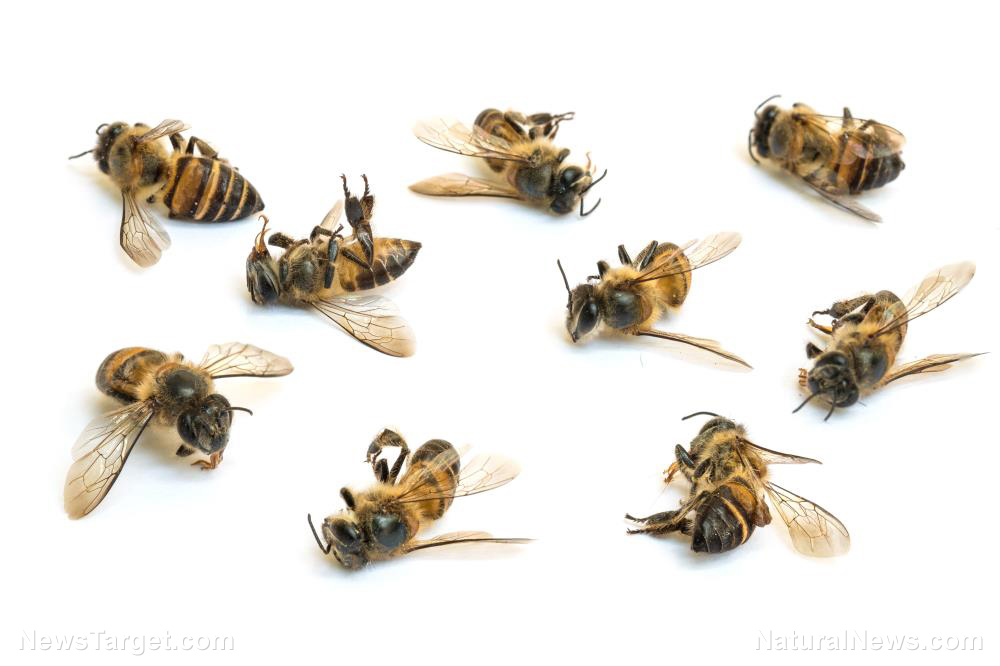
A nationwide survey led by the University of Maryland’s non-profit organization Bee Informed Partnership shows that beekeepers lost 40.7 percent of their honey bee colonies in just one year -- from April 2018 to April 2019. Researchers caution that this trend could soon affect food crops because these pollinating insects assume a critical job in the fertilization of plants.
Bee population decline observed over 10 years
Survey results indicated the yearly loss of 40.7 percent of honey bee populations, a negligible increase over the yearly average loss of 38.7 percent. However, the study noted that the winter losses were the highest recorded since the survey began 13 years ago.
“These results are very concerning, as high winter losses hit an industry already suffering from a decade of high winter losses,” said Dennis vanEngelsdorp, associate professor of entomology at the University of Maryland and president of the Bee Informed Partnership.
The survey involved over 4,700 beekeepers overseeing 320,000 colonies from each of the 50 states and the District of Columbia, representing about 12 percent of the country’s estimated 2.69 million managed colonies.
One of the main concerns the respondents had about the winter colony losses is varroa mites, which are external parasitic bugs that not only feed on bee colonies but also spread viruses.
In 2018, numerous beekeepers reported that poor treatment adequacy and constrained field tests demonstrated that products that once removed 90 percent of the mites no longer worked as potently as before, which has made the pest problem worse. This is on top of other factors such as land-use changes, pesticide exposures, environmental factors and beekeeping practices.
The decade-long trend of elevated losses has urged researchers to determine the precise cause of the collapse of these colonies -- but they are struggling to gain significant ground in diminishing the overall losses, shared Geoffrey Williams, assistant professor of entomology at Auburn University and co-author of the survey.
State and federal agricultural agencies, university researchers, and the beekeeping industry have been working together to solve the honey bee crisis since they first noted a dramatic loss in colonies 10 years ago.
In addition to cutting the funding for USDA programs, the Trump administration has permitted the Environmental Protection Agency (EPA) to expand the use of chemical insecticides, which was banned under the previous administration.
In July 2019, the EPA announced that some of these insecticides are exceptionally toxic to honey bees, causing the agency to require the manufacturers of these synthetic substances to print new statements on the package:
This product is highly toxic to bees and other pollinating insects exposed to direct treatment or to residues in/on blooming crops or weeds. Protect pollinating insects by following label directions intended to minimize drift and reduce pesticide risk to these organisms.
While researchers aren’t exactly sure what is specifically causing the bee colonies to collapse in large numbers, any more significant losses through the mid-2020s can lead to widespread crop losses that may trigger food shortages across the United States.
Implications of bee population collapse on food security
Honey bees are among the most diligent creatures on Earth, ensuring crop fertilization and thus the production of many cultivated and wild plants, which is pivotal for food production, human livelihoods and biodiversity.
Pollinators, such as honey bees, influence 35 percent of the world’s crop production, increasing yields of 87 of the main food crops around the world, including rice, corn, and potatoes, in addition to many plant-derived medicines.
About two-thirds of the crops that feed the world depend on these creatures for pollination to produce fruits, nuts and seeds for human consumption. The worldwide decline in honey bee populations represents a serious threat to a wide assortment of food crops.
"Bees are under great threat" from intensive agriculture, pesticide use, biodiversity loss and pollution, stressed Food and Agriculture Organization Director-General José Graziano da Silva on last year’s World Bee Day.
"The absence of bees and other pollinators would wipe out coffee, apples, almonds, tomatoes and cocoa to name just a few of the crops that rely on pollination. Countries need to shift to more pollinator-friendly and sustainable food policies and systems," he said.
Graziano da Silva urged people to make pollinator-friendly choices such as growing flowering plants at home to provide food for pollinating bees.
Interested in more ways to help protect bees? Visit Bees.news for stories and tips.
Sources include:
Please contact us for more information.























